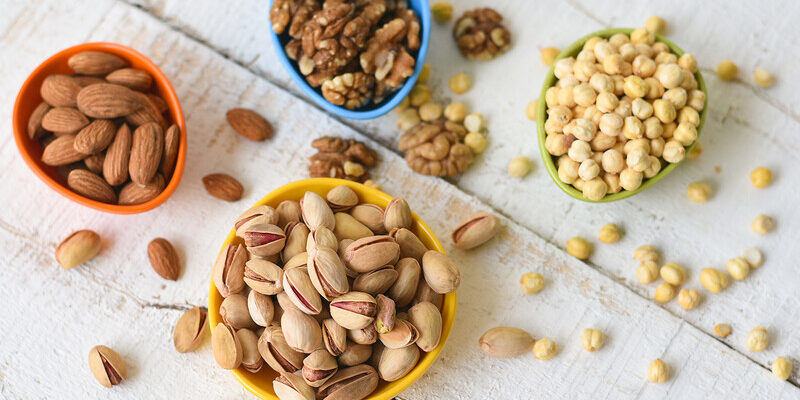By Danielle Johnson, RDN, CDN
The World Health Organization has stated its concern over the long-term impact on mental health of the worldwide COVID-19 pandemic, and the need to provide resources to help all of us heal. Food can be a fun addition to help improve mental health.
The gut is the only organ in the human body to have its own nervous system, the enteric nervous system. Research theorizes that because of this connection, our gut health may be a key factor in protecting our mental health. Furthermore, 90 percent of the body’s serotonin (the “happy” hormone) is produced in the human gut. Serotonin is highly associated with anxiety, depression and major depressive disorder. The nutrients that research focuses on related to mental health include fiber, prebiotics and probiotics.
Probiotics (beneficial bacteria) have been shown to protect the intestinal lining, enhance immunity, as well as promote balance of hormones and neurotransmitters. Because of this, probiotics prevent pro-inflammatory molecules from entering the gut and brain. Probiotics have shown potential anti-depressive properties by assisting production of tryptophan, which produces serotonin and prevents more pro-inflammatory molecules from being developed. Inflammation can have a negative effect on our mental health, and poor mental health can promote inflammation.
Prebiotics and fermentable fiber are important contributors to mental health as they feed the probiotics in the human gut. Research has also shown that these nutrients have positive effects on reducing anxiety, depression and stabilizing levels of healthy bacteria in the gut. It has also been documented that inflammation in the gut directly affects brain function through the vagus nerve, promoting anxiety, depression and even memory loss.
Research suggests that we get the most benefit from consuming these nutrients via whole foods. Whole foods work in synergy with other nutrients in food (phytonutrients, antioxidants, etc.) that are not found in supplements, and this synergy can provide many more benefits to our overall health. It is recommended to consume at least 14 grams of fiber daily per 1,000 calories. Currently there are no concrete dosage recommendations for pre- and probiotics. When using a supplement, it is best to look for a “USP” or “Consumer Lab” seal on the bottle for the safest product.
Whole foods to consider incorporating into a balanced diet to promote good mental health include:
- Prebiotics: artichokes, onions, garlic, shallots, leeks, bananas, berries, soybeans, peas, legumes, eggplant, beets, wheat, barley, rye, chia seeds, flaxseeds, green tea, raw honey
- Probiotics: yogurt, aged cheese, kefir, kimchi, sauerkraut, pickled veggies, tempeh, miso paste, vinegar, kombucha, sourdough bread
- Fiber: plant foods – fruits, veggies, whole grains (especially oats, wheat, bran and barley), beans, lentils, nuts & seeds
Danielle Johnson, RDN, CDN, is a registered dietitian in Mather Hospital’s Bariatric Center of Excellence, where she specializes in surgical weight loss and medical weight management. A graduate of Long Island University/ CW Post, she is completing her Master of Science degree in Integrative Nutrition at Stony Brook University.

